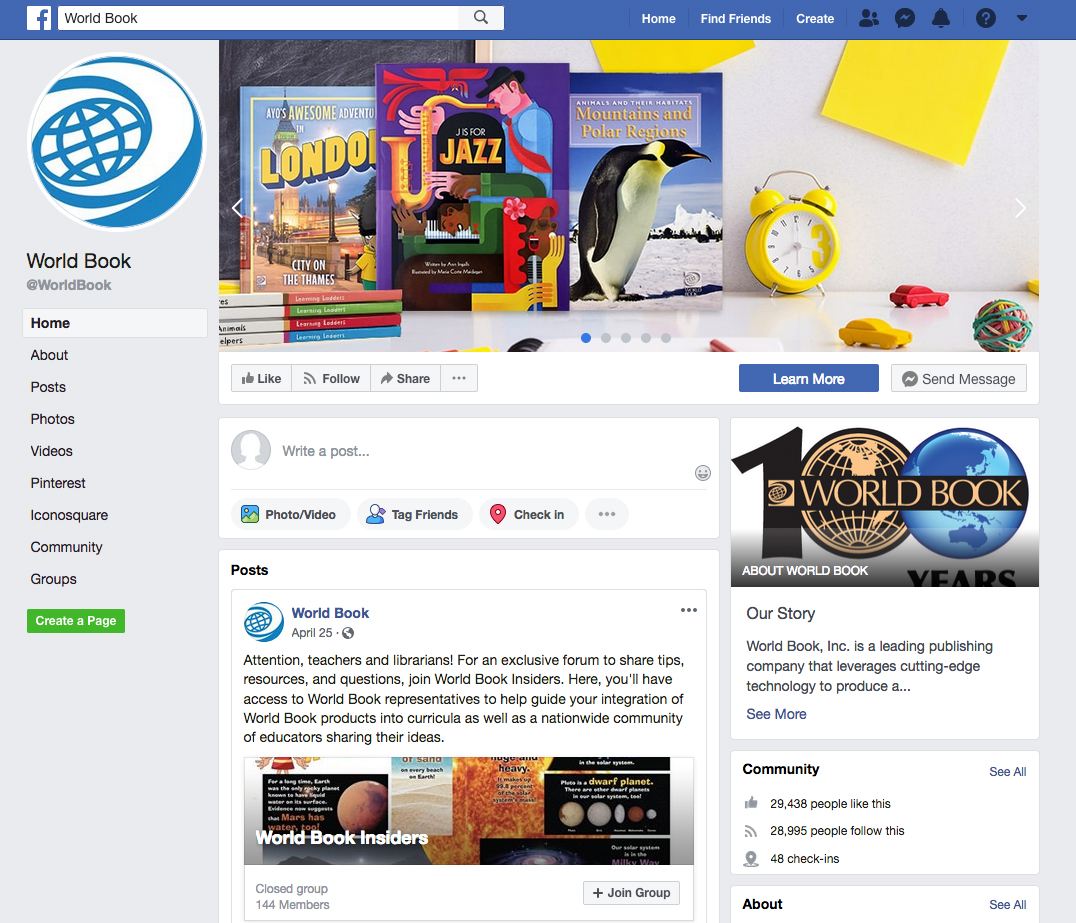Facebook is a social networking website that connects people with common interests. Facebook enables its users to keep up to date on one another’s activities. Users can send messages to one another and share pictures, videos, and interesting websites or articles. They can also join networks set up by such organizations as schools, businesses, and charities. Millions of people use Facebook around the world.
Uses.
Facebook users create profiles that typically include photographs and information about themselves. Much activity on Facebook revolves around a process known as friending. Users can send other people or organizations “friend requests.” If the other party accepts, the two users become friends. Friends can see information on each other’s profiles and interact more easily through the website. Some Facebook users have hundreds or thousands of such friends. Facebook and similar websites have helped shift the meaning of the word friend. Users may or may not personally know, trust, or even like their friends on Facebook.

Like other new forms of communication, Facebook has changed society. By enabling people to communicate instantly with vast networks of friends, the website helps ideas spread quickly through online “word of mouth.” Facebook has reshaped the way advertisers, charities, news organizations, and political campaigns spread their messages.
Facebook has also caused concerns about online privacy. Some Facebook users may post information or pictures to their profiles that later embarrass them or help unwanted people to find them. Users can control the type of information other people see by adjusting their profile’s privacy settings.
History.
Mark Zuckerberg, a student at Harvard University, founded Facebook in his dorm room in 2004. Four other students—Chris Hughes, Andrew McCollum, Dustin Moskovitz, and Eduardo Saverin—also helped. The name Facebook refers to collections of student photographs distributed by Harvard’s student houses. The website, like such “facebooks,” was designed to help students connect and make new friends.
Originally, only Harvard students could use Facebook. But interest quickly spread among students from other schools. Facebook’s founders soon made the website available to other colleges in the Boston area. Interest continued to grow, and the website eventually became open to any university or high school student. In September 2006, Facebook opened to anyone over the age of 13 with an e-mail address.
Facebook quickly became popular in many countries. In 2011, people in Tunisia and Egypt used Facebook to help organize massive protests, which eventually toppled the governments of both countries. In 2012, Facebook became a public company called Facebook, Inc., with an initial public offering of $104 billion—one of the largest ever (see Initial public offering (IPO) ). Facebook, Inc., acquired Instagram, a popular Internet photo-sharing service, in the same year.
In a 2018 interview with a British newspaper, a former employee of the political consulting firm Cambridge Analytica publicly revealed information about the firm’s unauthorized use of private Facebook data. The data was obtained from millions of Facebook users through a third-party app. Cambridge Analytica used the data to target individuals and small groups with political propaganda in the 2016 United States presidential election. News of this unauthorized use of private data created a public backlash against Facebook. Many users claimed that Facebook, Inc., was not transparent enough in its privacy policies. Others called for government regulation of Facebook, Inc., and other social media companies.
Facebook is available in more than 60 languages. In 2021, Facebook, Inc., changed its name to Meta Platforms, Inc. The company’s headquarters are in Palo Alto, California. It also operates out of Dublin, Ireland, and Seoul, South Korea.
